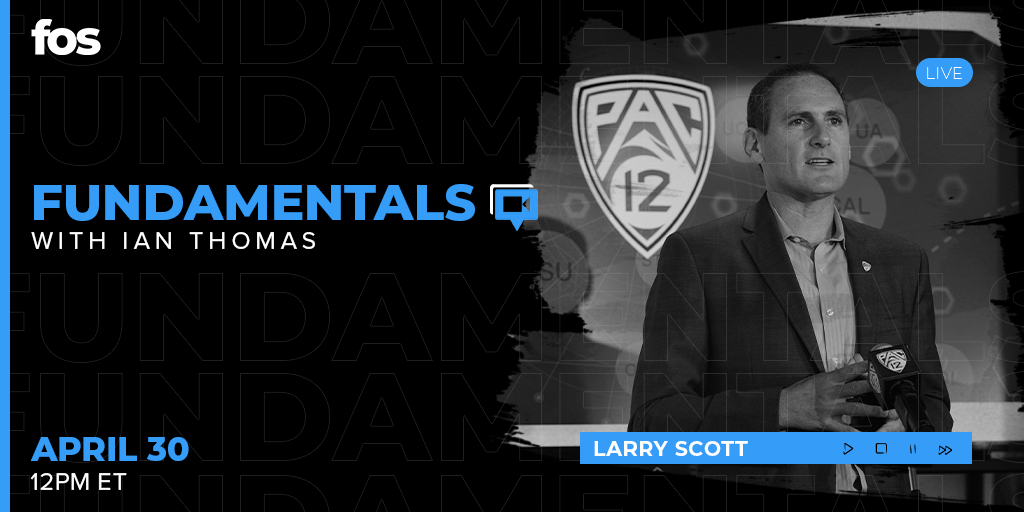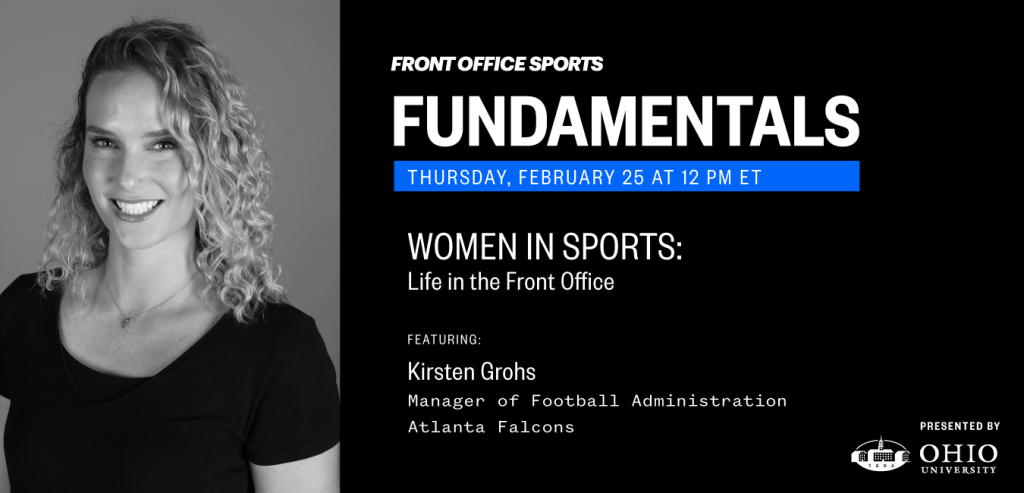On the heels of the NCAA Board of Governors’ step towards allowing college athletes to profit off their name, image and likeness, Pac-12 Conference Commissioner Larry Scott joined Fundamentals to discuss the NIL rule’s impact, the potential role of the coronavirus, and also what might lie in store for the future of tennis.
In a discussion with FOS reporter Emily Caron, Scott said that while the NIL development is a “very positive step for student-athletes,” having streamlined rules across colleges were important to “preserve the essence of college athletics.” With states like California issuing their own regulations, Scott said there’s a big incentive for Congress to enact legislation.
“If Congress isn’t able to act, we’ll be in a world where there are different laws in different states, and that will be a mess in recruiting and competitive equity and lead to seismic changes in competitive balance,” Scott said.
Scott also worries there will be a much higher feeling of inequality in college athletics on speculation that 95% of the incoming money will go to male athletes, based on his observations of the U.S. Olympic women’s soccer and hockey teams, as well as the WNBA.
Scott also pointed out the financial impact of the new NIL rules may be compounded by COVID-19 to result in a significant scaling back of sports at universities across the country.
Though March Madness was canceled, universities were able to at least complete this past football season. Next year, however, things could be different.
“The concern is going into the next fiscal year and the upcoming football season; by most measures, it’s responsible for 85% of overall revenue in a league like ours,” Scott said. “Most people assume it’s more balanced, but football is the engine that is driving the revenue that comes in.”
Getting football off the ground will come down to several factors, starting with when students can safely return to campuses. Scott said there are a variety of stakeholders involved in that decision, but it will be made in concert with all the other conferences.
“At the moment, we’re still anticipating football season will start on time, but we’ll also be ready for plan B, C, D, and E,” he said.
Scott also discussed how the coronavirus outbreak could affect future broadcast rights deals – which for the Pac-12 expire in 2024 – and the fan experience.





![[Subscription Customers Only] Jun 15, 2025; Seattle, Washington, USA; Botafogo owner John Textor inside the stadium before the match during a group stage match of the 2025 FIFA Club World Cup at Lumen Field.](https://frontofficesports.com/wp-content/uploads/2026/02/USATSI_26465842_168416386_lowres-scaled.jpg?quality=100&w=1024)
![[Subscription Customers Only] Jul 13, 2025; East Rutherford, New Jersey, USA; Chelsea FC midfielder Cole Palmer (10) celebrates winning the final of the 2025 FIFA Club World Cup at MetLife Stadium](https://frontofficesports.com/wp-content/uploads/2026/02/USATSI_26636703-scaled-e1770932227605.jpg?quality=100&w=1024)










